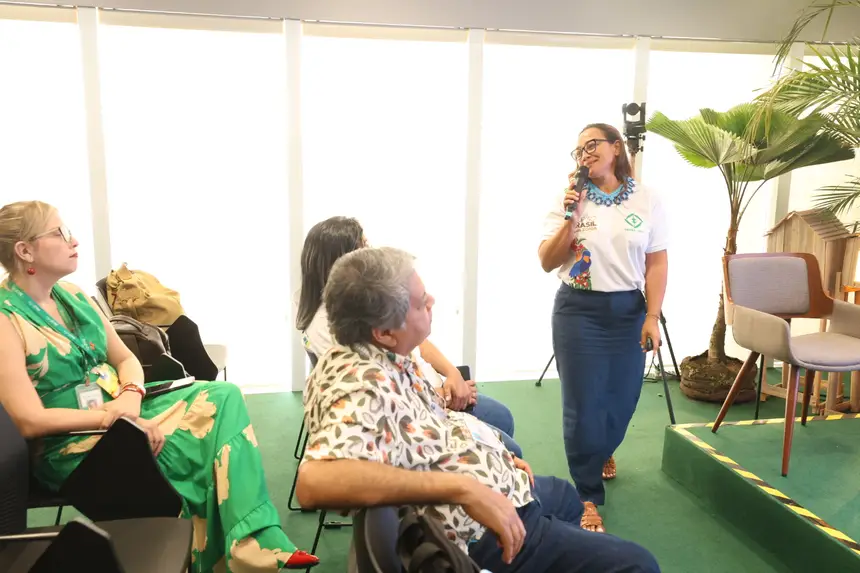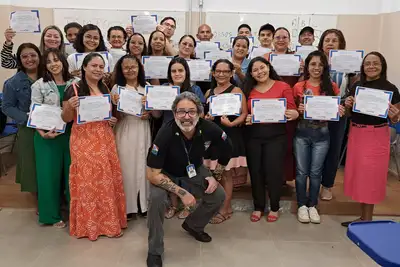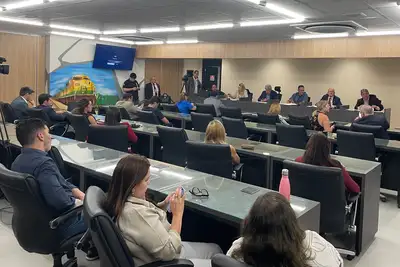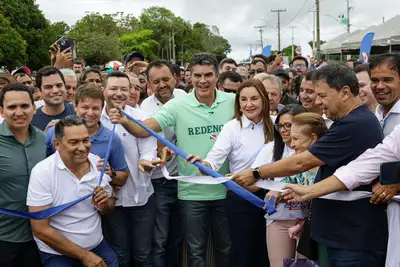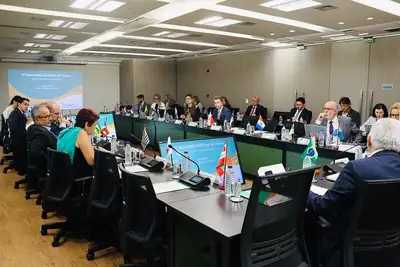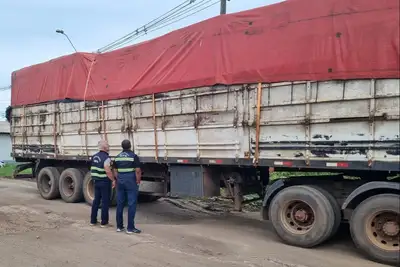Emater presents an overview of assistance to indigenous peoples of the Santareno Plateau Territory
The government of Pará expands rural extension and technical assistance for traditional peoples, with access to public policies
The indigenous peoples of the Lower Amazon region were highlighted in the panel "Indigenous Ater in the Santareno Plateau Region: A pioneering experience," this Saturday (15), at the United Nations Climate Change Conference (COP30) in Belém. The debate was organized by the Government of Pará, in the Seringueira room, at the Pará Pavilion, Green Zone, through the Technical Assistance and Rural Extension Company of the State of Pará (Emater-Pará).
Indigenous peoples play a fundamental role in environmental preservation, both through the way they manage natural resources and through the spiritual relationship they have with nature, in their cultivation practices passed down by their ancestors.
In this context, rural extension worker Ângela Souza, from the Santarém Local Office of Emater-Pará, presented an overview of the actions carried out in a specific region of the Santareno Plateau and highlighted the specificities of serving this traditional population.
"Our work was developed in this region to provide access to public policies for these traditional populations, especially in the issuance of the National Family Agriculture Registry (CAF), which is the first document they need to access any public policy, such as the Food Acquisition Program (PAA) and the National School Feeding Program (Pnae), for their own indigenous schooling, in addition to credit lines for project financing," she explained.
The Indigenous Territory of the Santareno Plateau is composed of five villages: Açaizal, Amparador, Ipaupixuna, São Francisco da Cavada, and São Pedro do Palhão, belonging to the Munduruku and Apiaká ethnic groups. The main productive chains developed in the region are: cassava, açaí extraction, fruit cultivation, fishing, and raising small, medium, and large animals, which are the basis of the diet and economy of these indigenous families.
"By 2026, we at Emater want to strengthen our work in the region, with more technical visits, to continue this work, offering courses and workshops on cassava cultivation, native açaí, and other demands we have already discussed with them. Our goal is to provide this public Ater to the 262 indigenous families living there, in a continuous, effective, committed manner, and within agroecological principles," she concluded.
Policy on Diffuse and Collective Rights - Emater Pará has the Policy on Diffuse and Collective Rights, which was established through Ordinance No. 0456/2023, dated 07/05/2023, and implemented on 07/10/2023. In it, policies of equity in gender, generation, race, and ethnicity relations were assigned as a priority for the company to implement general guidelines, as well as providing technical assistance and rural extension services to indigenous peoples, quilombola communities, and women, among others.




